
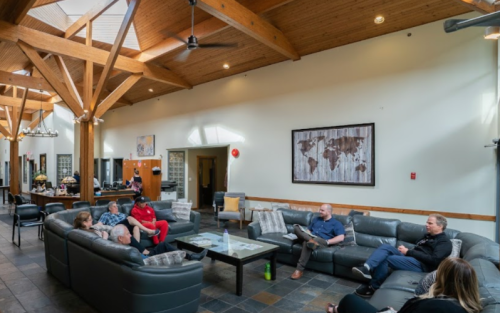
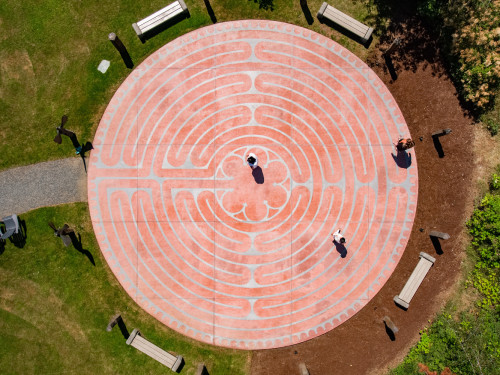
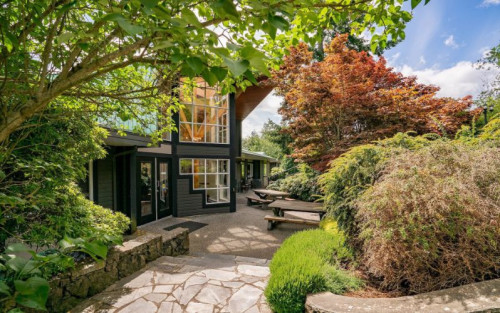
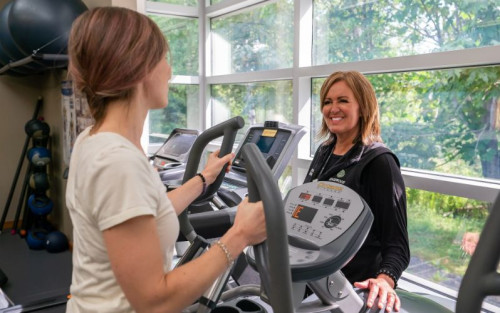




EHN Edgewood Nanaimo
Verified Center
This provider's information has been quality-checked by Recovery.com's Research Team for accuracy and completeness, including center verification through appropriate third-party organizations.
Treatment Focus
This center treats substance use disorders and mental health conditions. You'll receive individualized care catered to your unique situation and diagnosis, learn practical skills for recovery, and make new connections in a restorative environment.
Primary Level of Care
Offering intensive care with 24/7 monitoring, residential treatment is typically 30 days and can cover multiple levels of care. Length can range from 14 to 90 days typically.
Treatment Focus
This center treats substance use disorders and mental health conditions. You'll receive individualized care catered to your unique situation and diagnosis, learn practical skills for recovery, and make new connections in a restorative environment.
Primary Level of Care
Offering intensive care with 24/7 monitoring, residential treatment is typically 30 days and can cover multiple levels of care. Length can range from 14 to 90 days typically.
Provider's Policy
EHN Edgewood Nanaimo's treatment programs can vary in coverage depending on your insurance plan. Contact the EHN Edgewood team so they can help understand your coverage.
EHN Edgewood Nanaimo
EHN Edgewood Nanaimo
About EHN Edgewood Nanaimo
Situated amongst the natural beauty of Vancouver Island’s east coast, EHN Edgewood Nanaimo is a private treatment center in Nanaimo. EHN Edgewood Nanaimo provides treatment for addiction and co-occurring mental health disorders. They provide inpatient treatment and a Virtual Intensive Treatment Program (VITP), an online rehab program available through the EHN Online app.
Evidence-Based And Personalized
EHN Edgewood Nanaimo uses an evidence-based approach for comprehensive recovery, prioritizing the individual needs of each client. EHN Edgewood Nanaimo has talented therapists, counselors, clinicians, and family therapists. Their counselors and therapists are all masters-level. Nurses monitor treatment 24/7, during and after detox. EHN Edgewood Nanaimo provides residential treatment (7 weeks) and an extended care program (additional 42-90 days).
Evidence-Based And Holistic Treatment
EHN Edgewood Nanaimo offers a variety of evidence-based therapies for addiction and mental health. These include cognitive behavioral therapy (CBT), dialectical behavioral therapy (DBT), accelerated resolution therapy (ART), and 12-Step peer groups. EHN Edgewood Nanaimo also offers recovery Dharma groups and SMART (Self-Management and Recovery Training) recovery groups. Their wellness services include yoga, fitness, mindfulness activities, art therapy, and music therapy.
Comfortable And Rejuvenating
Clients at EHN Edgewood Nanaimo can enjoy a shared or single room, an on-site café run by alumni, a gym, and access to Vancouver Island’s peaceful nature. After treatment, clients have access to a full year of aftercare services. These include in-person or online maintenance sessions and lifelong access to a strong alumni network. Clients can move into an IOP after residential treatment and ultimately return home with a well-crafted relapse prevention plan.

Highlights from the Center
Highlights
These highlights are provided by and paid for by the center.
Co-Occurring Disorders Treatment
Trauma-Informed Care
Addiction Recovery
Center Overview
Treatment Focus
This center treats substance use disorders and mental health conditions. You'll receive individualized care catered to your unique situation and diagnosis, learn practical skills for recovery, and make new connections in a restorative environment.
CARF Accredited
CARF stands for the Commission on Accreditation of Rehabilitation Facilities. It's an independent, non-profit organization that provides accreditation services for a variety of healthcare services. To be accredited means that the program meets their standards for quality, effectiveness, and person-centered care.

EHN Edgewood Nanaimo
Insurance Accepted
Pricing and Program Length
Estimated Center Costs
The cost listed here (Call for price), is an estimate of program cost. Center price can vary based on program and length of stay. Contact the center for more information. Recovery.com strives for price transparency so you can make an informed decision.




Our Centers
Recovery.com Verified Listing
Recovery.com verified that the name, location, contact information and license to operate for this treatment provider are valid and up-to-date.

CARF Accredited

Licensed
Recovery.com is an independent, third-party mental health resource. Verification does not imply endorsement and does not guarantee the quality of treatment services.
Meet Your Care Team

Dr. Christina Basedow
Chief Operations Officer
RCC, CSAT, CMAT

Joel Hughes
Clinical Director
MA

Maria Chadwick
Operation & Business Services Director

Dr. Gary Richardson
Director of Medical Services
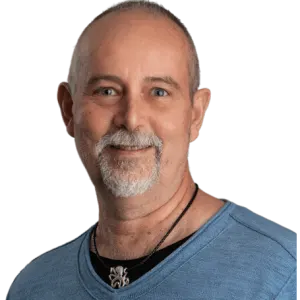
Dr. Mel Vincent
Director of Psychiatric Services
B.A.Sc., M.Sc., M.D., F.R.C.P.(C), ASAM
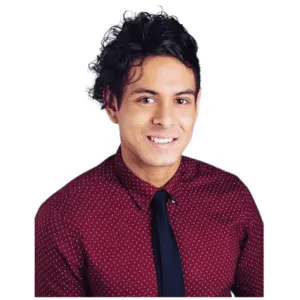
Dr. Ian King
Psychiatrist
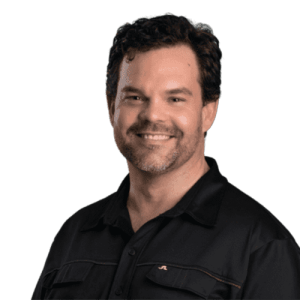
Trevor Sigmundson
Clinical Supervisor
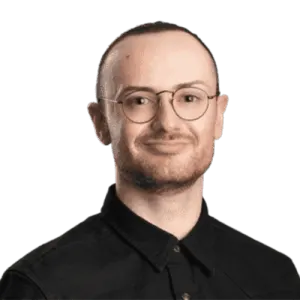
Lliam Broderick
Clinical Counsellor
MA
Your Care Options
Specializations
Alcohol
Using alcohol as a coping mechanism, or drinking excessively throughout the week, signals an alcohol use disorder.
Benzodiazepines
Benzodiazepines are prescribed to treat anxiety and sleep issues. They are highly habit forming, and their abuse can cause mood changes and poor judgement.
Co-Occurring Disorders
A person with multiple mental health diagnoses, such as addiction and depression, has co-occurring disorders also called dual diagnosis.
Cocaine
Cocaine is a stimulant with euphoric effects. Agitation, muscle ticks, psychosis, and heart issues are common symptoms of cocaine abuse.
Drug Addiction
Drug addiction is the excessive and repetitive use of substances, despite harmful consequences to a person's life, health, and relationships.
Opioids
Opioids produce pain-relief and euphoria, which can lead to addiction. This class of drugs includes prescribed medication and the illegal drug heroin.
Prescription Drugs
It's possible to abuse any drug, even prescribed ones. If you crave a medication, or regularly take it more than directed, you may have an addiction.
Who We Treat
Young Adults
Emerging adults ages 18-25 receive treatment catered to the unique challenges of early adulthood, like college, risky behaviors, and vocational struggles.
LGBTQ+
Addiction and mental illnesses in the LGBTQ+ community must be treated with an affirming, safe, and relevant approach, which many centers provide.
Men and Women
Men and women attend treatment for addiction in a co-ed setting, going to therapy groups together to share experiences, struggles, and successes.
Treatment Services
Detox
Detox fully and safely removes toxic substances from the body, allowing the next steps in treatment to begin with a clean slate.
Intensive Outpatient Program
In an IOP, patients live at home or a sober living, but attend treatment typically 9-15 hours a week. Most programs include talk therapy, support groups, and other methods.
Licensed Primary Mental Health
Some primary care providers offer mental health diagnosis and treatment. This can prevent patients from developing more serious conditions.
Residential
In a residential rehab program, patients live onsite, with access to daily treatment and 24-hour care. An average stay is 30-90 days.
Approaches
Evidence-Based
A combination of scientifically rooted therapies and treatments make up evidence-based care, defined by their measured and proven results.
Family Involvement
Providers involve family in the treatment of their loved one through family therapy, visits, or both–because addiction is a family disease.
Holistic
A non-medicinal, wellness-focused approach that aims to align the mind, body, and spirit for deep and lasting healing.
Individual Treatment
Individual care meets the needs of each patient, using personalized treatment to provide them the most relevant care and greatest chance of success.
Therapies
1-on-1 Counseling
Patient and therapist meet 1-on-1 to work through difficult emotions and behavioral challenges in a personal, private setting.
Meditation & Mindfulness
A practiced state of mind that brings patients to the present. It allows them to become fully aware of themselves, their feelings, and the present moment.
Art Therapy
Visual art invites patients to examine the emotions within their work, focusing on the process of creativity and its gentle therapeutic power.
Family Therapy
Family therapy addresses group dynamics within a family system, with a focus on improving communication and interrupting unhealthy relationship patterns.
Medication-Assisted Treatment
Combined with behavioral therapy, prescribed medications can enhance treatment by relieving withdrawal symptoms and focus patients on their recovery.
Psychoeducation
This method combines treatment with education, teaching patients about different paths toward recovery. This empowers them to make more effective decisions.
Relapse Prevention Counseling
Relapse prevention counselors teach patients to recognize the signs of relapse and reduce their risk.
Conditions We Treat
Anxiety
Anxiety is a common mental health condition that can include excessive worry, panic attacks, physical tension, and increased blood pressure.
Substances We Treat
Alcohol
Using alcohol as a coping mechanism, or drinking excessively throughout the week, signals an alcohol use disorder.
Benzodiazepines
Benzodiazepines are prescribed to treat anxiety and sleep issues. They are highly habit forming, and their abuse can cause mood changes and poor judgement.
Chronic Relapse
Consistent relapse occurs repeatedly, after partial recovery from addiction. This condition requires long-term treatment.
Co-Occurring Disorders
A person with multiple mental health diagnoses, such as addiction and depression, has co-occurring disorders also called dual diagnosis.
Cocaine
Cocaine is a stimulant with euphoric effects. Agitation, muscle ticks, psychosis, and heart issues are common symptoms of cocaine abuse.
Drug Addiction
Drug addiction is the excessive and repetitive use of substances, despite harmful consequences to a person's life, health, and relationships.
Ecstasy
Ecstasy is a stimulant that causes intense euphoria and heightened awareness. Abuse of this drug can trigger depression, insomnia, and memory problems.
Heroin
Heroin is a highly addictive and illegal opioid. It can cause insomnia, collapsed veins, heart issues, and additional mental health issues.
Languages
Aftercare
Care Designed for Your Needs
Personal Amenities
Amenities
Special Considerations
Healthy Meals are provided
Great food meets great treatment, with providers serving healthy meals to restore nutrition, wellbeing, and health.
LGBTQ group
Group therapy unites LGBTQ+ patients in a safe and culturally competent setting, encouraging peer support under the expert leadership of a therapist.
First Responders Program
Paramedics, police officers, firefighters, and others join in a specific First Responders program, usually focused on trauma, grief, and work-life balance.
Activities
Yoga
Yoga is both a physical and spiritual practice. It includes a flow of movement, breathing techniques, and meditation.

Learn More About the Center
More About Aftercare
See why aftercare can be so important for long-term recovery.
The Family Program
Learn more about EHN Edgewood Nanaimo’s family program, and the modules in their family workshop.
Battle And PTSD Recovery
Veteran and EHN Edgewood Nanaimo alumnus Jon Donovan describes his experience with PTSD recovery, and how Edgewood helped him heal.
Photos And Amenities
Discover more about what EHN Edgewood Nanaimo offers and see some of the nature surrounding them.
What people are saying
Treatment
5.0
Accommodations
5.0
Food & Nutrition
4.5
Value
4.0
Rob K
Treatment in 2021 • (90 days) • Reviewed 02/06/26
Former Client
•Musician
C.B.
Treatment in 2006 • (60 days) • Reviewed 08/28/24
Former Client
•Law Enforcement
•Alberta





